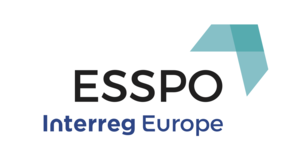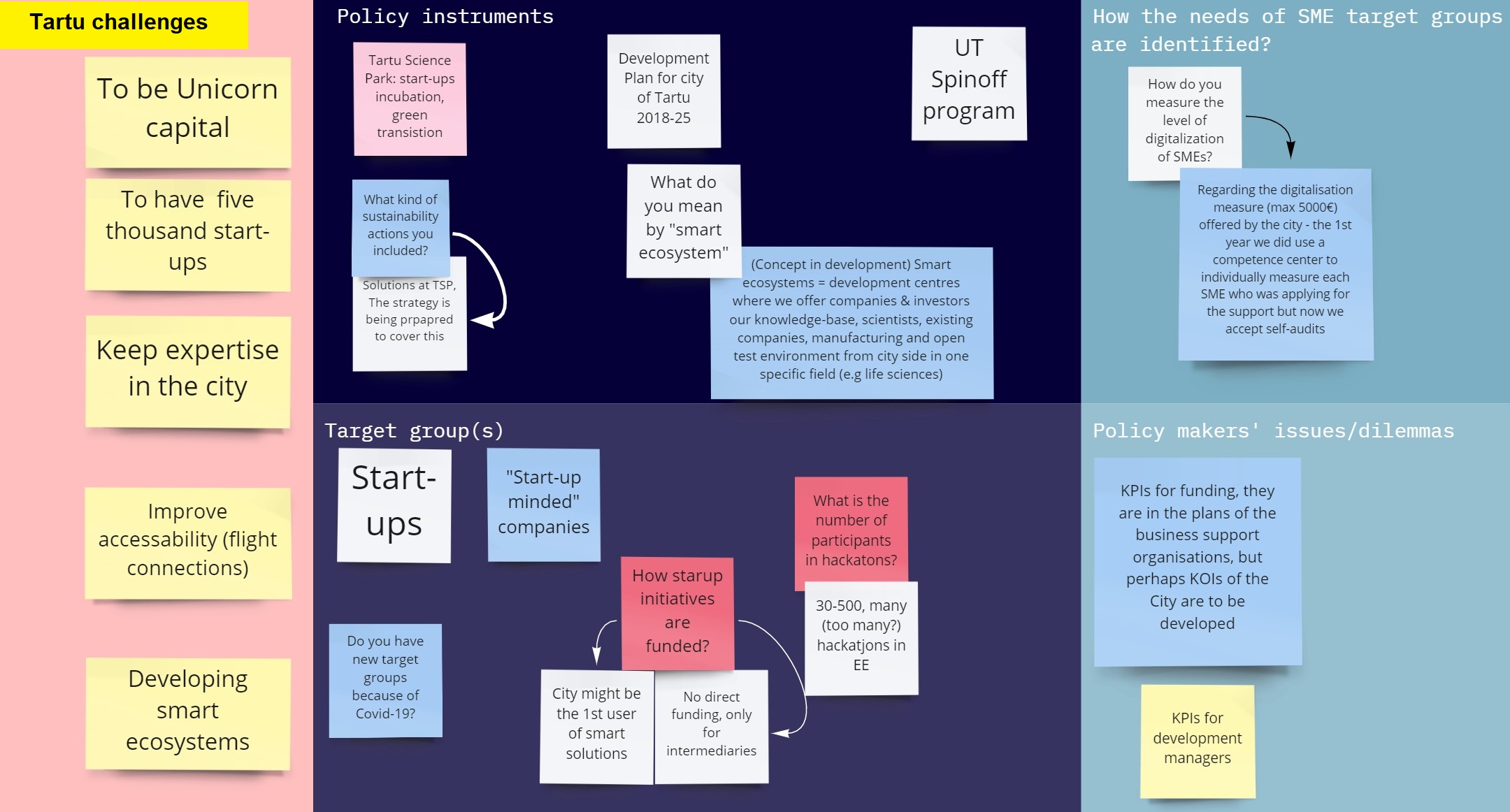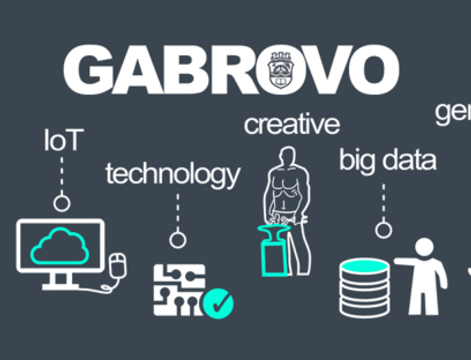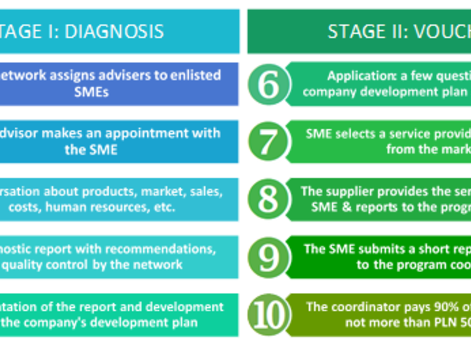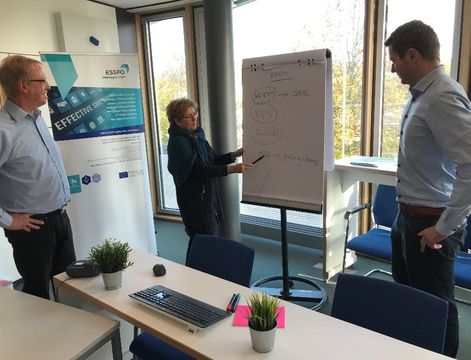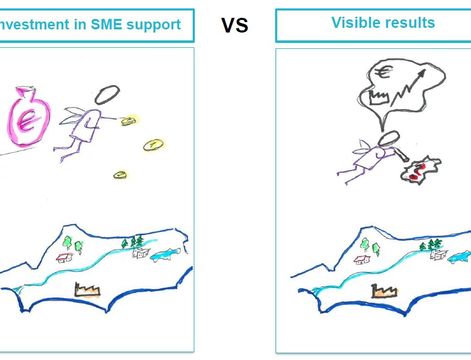This time our regional stakeholders’ meeting was bigger than the previous one bringing together 30 participants from innovator centers, Marshal Office of the Wielkopolska Region and companies.
This is the opportunity when we can come together as innovators to co-create and brainstorm new ideas that might create value for policy makers – greeted the participants Elżbieta Książek – ESSPO project manager.
The workshop delivered living-lab sessions, regarding the critical topics of interest to the attendees who shared their visions on regional SMEs’ development.
During the meeting, we used the design thinking tools (personas, empathy maps), which helped us understand deeper all the target groups’ needs. The next step was to focus on choosing the most crucial issues and eliminate all of the less important ones. The hardest part was the elimination of subconscious and stereotyping judging. The second part of the workshop activities kicked into high gear in order to finish design thinking process of working on personas and their empathy map (startup, mature company, local authority representative, innovation center manager). The meeting closed with the most important “how might we” questions related to personas’ points of view.
This intense and productive day may be summarized as follows for the particular target groups:
1. START-UP - new company established by non-experienced entrepreneurs, mostly within the smart specialization areas and with innovative business models, also any start-ups in the areas with low entrepreneurship indicators.
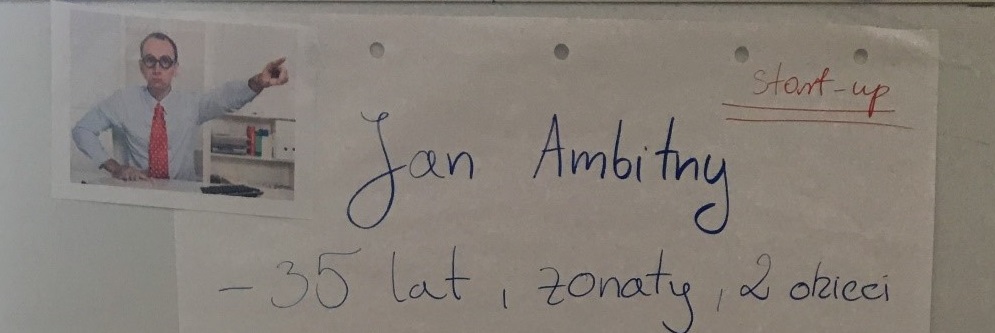
Points of view (needs):
Start-ups need access to equity financing, to be able to develop their business ideas. They also need to get awareness that the funding is means not the end on its own. They need skills of client and market acquisition, and complex consultancy and support in all aspects of company management, because they have limited knowledge and human resources.
How might we questions:
• How might we adjust support to individual needs of start-up companies.
• How might we help start-up entrepreneurs to understand that the funding is not the only factor of success?
2. FIRST TIME INNOVATORS - potentially innovative, mature companies companies, who have not engaged in innovation yet.

Points of view (needs):
Potentially innovative companies are motivated with financial means, because they want to increase the scale of their activity. They need awareness and knowledge on how innovation can help their development. They also need high quality advice to get diagnosis of innovation potential and assist innovation process.
How might we questions:
• How might we help mature, potentially innovative companies to get understanding of need and importance of innovation, as well as the value of specified advice? Because they do not think they need to use advice and external sources of innovation.
• How might we help companies to effectively implement innovation ?
3. PUBLIC AUTHORITIES
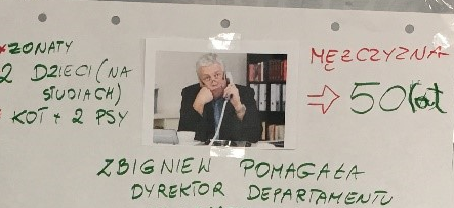
Points of view (needs):
Public administration need knowledge and feedback from SME to be able to design and effectively implement support. They also need competent employees for this purpose. They are motivated to large extent that non content factors, they have limited influence on: requirements and restriction by higher levels of governance (central and EU), requirement to absorb effectively the funds, election cycles etc.
How might we questions:
• How might we make communication effective among all the stakeholders, so that public administration gets sound and reliable knowledge and feedback form its clients?
• How might we increase the influence of content related aspects in the design and implementation of SME support instrument?
4. BUSINESS SUPPORT ORGANISATIONS (INNOVATION INTERMEDIARIES)
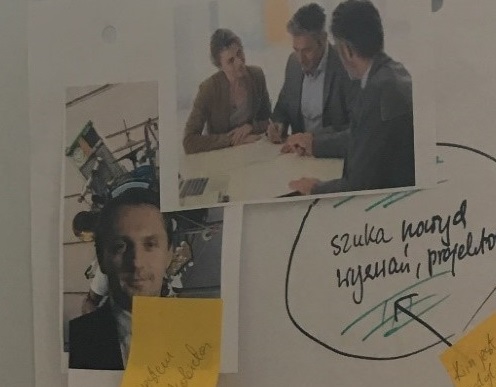
Points of view (needs):
BSO need skills to acquire clients, but also specialisation and competent employees. They need new effective methods of work and financing. There is need of centralised knowledge on who is who and who does what, as well as reference system so that companies and other intermediaries know whom to turn to for specific issue.
How might we questions:
• How might we get intermediaries to provide highest quality added value services that answer entrepreneurs expectations?
• How might we effectively finance activities and rise competences of intermediaries to set up functional and stable system in the region?
